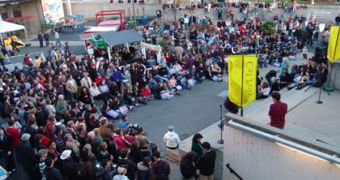Despite the popular belief that labels the decisions made by large groups of people with traits such as “herd mentality,” “angry mob,” or “mass hysteria,” recent scientific and psychological studies have revealed that larger numbers of individuals actually seem to give more accurate responses to various issues than single ones. According to statistics, the accuracy of a group reply is, on average, higher than that of single individuals, simply because more numerous opinions eliminate the possibilities of errors persisting. Single persons do not boast that luxury.
In other words, it may be safe to say that the individual tendency to over- or under-estimate a response to a question is overridden by the group, which, as a whole, tends to see things more clearly. That's not to say that the latter can get out of control and behave irrationally. The new research has been only focused on calm groups, which have been surveyed in a controlled experiment. The finds are detailed in the Association for Psychological Science's journal, Psychological Science.
The investigators in charge of the paper, University of Basel (UB) psychologists Stefan M. Herzog and Ralph Hertwig, say that persons tend to make bad decisions when acting alone simply because they have no one to consult with. This means that they have no way of knowing for sure if the conclusion they have arrived at is correct or not.
A psychological technique known as “dialectical bootstrapping” has been used in the new experiment. Participants were asked to think of the years of major historic events. After they gave their first answer, they were required to focus on reasons why their response might be wrong and to give a new one. This method allowed people to revisit their line of thought – the process was similar to that going on inside the collective mind of a crowd.
According to the results, individuals were more likely to give a more accurate answer the second time. In a control group, they were asked to come up with a second one as well, but were not told to think of reasons why their first reply might be wrong. Differences between the test and the control groups revealed that persons who revisited their first response were more likely to think of an “average answer” in their minds, as in a reply that didn't vary too much from the original estimates. Yet, the second was in most cases more accurate than the first.
“As dialectical bootstrapping illustrates, being of two minds can also work to one's advantage. Once taught about the tool, people could make use of it to boost accuracy of their estimates across a wide range of domains,” the scientists conclude.

 14 DAY TRIAL //
14 DAY TRIAL //